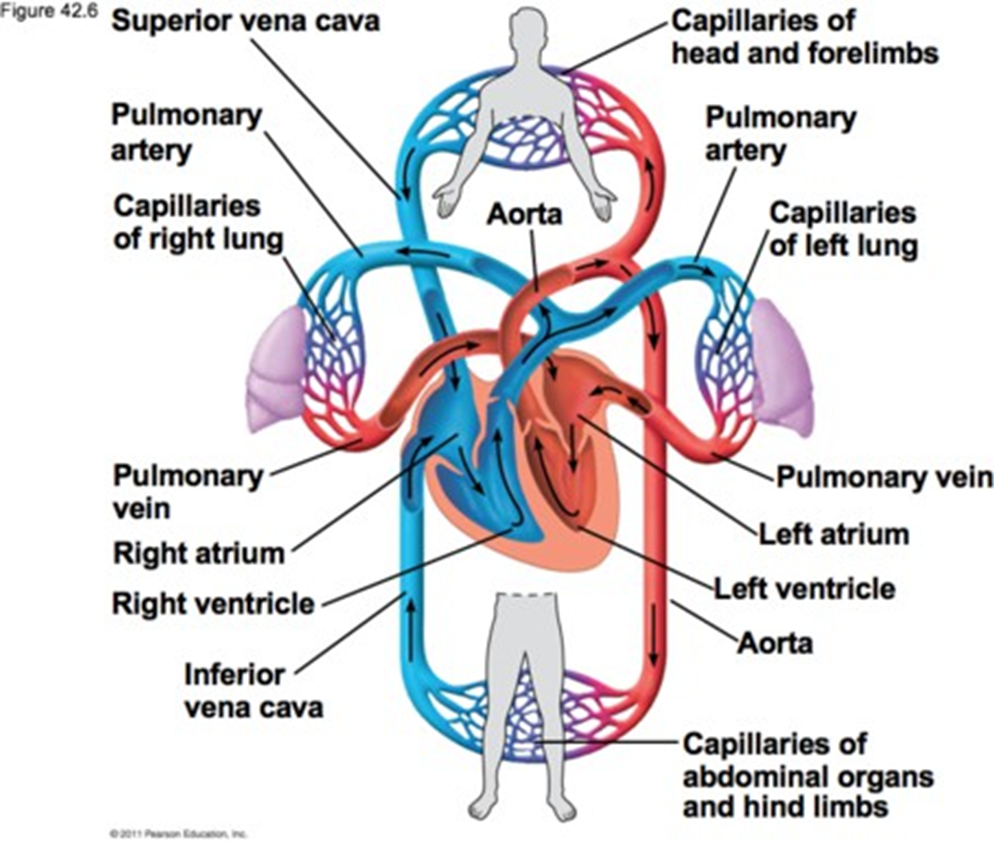A 56-year-old individual visits his primary care provider for a routine checkup.The physical examination reveals edema, an enlarged liver (hepatomegaly), and muffled heart sounds.
Which of the following findings should the nurse be most concerned about?
Pulsus paradoxus.
Exudate.
Aneurysm.
Tamponade.
The Correct Answer is D
Choice A rationale
Pulsus paradoxus, an exaggerated decrease in systolic blood pressure during inspiration, can be a sign of several conditions, including pericardial tamponade, constrictive pericarditis, and restrictive cardiomyopathy.
Choice B rationale
Exudate, a fluid with a high protein content that leaks out of blood vessels due to inflammation, is not typically associated with the symptoms described.
Choice C rationale
An aneurysm, a bulge or ballooning in a blood vessel, could potentially cause the symptoms described, but it is not the most concerning finding given the symptoms of edema, hepatomegaly, and muffled heart sounds.
Choice D rationale
Tamponade, a serious condition in which fluid or blood fills the pericardial sac, compressing the heart and preventing it from pumping effectively, could cause the symptoms described and would be the most concerning finding.
Nursing Test Bank
Naxlex Comprehensive Predictor Exams
Related Questions
Correct Answer is C
Explanation
Choice A rationale
This sequence is incorrect because it suggests that blood goes from the lungs to the pulmonary artery, which is not accurate. The pulmonary artery carries deoxygenated blood from the heart to the lungs.
Choice B rationale
This sequence is incorrect because it suggests that blood goes from the pulmonary vein to the lungs, which is not accurate. The pulmonary vein carries oxygenated blood from the lungs to the heart.
Choice C rationale
This sequence correctly describes the direction of blood flow through the heart and lungs. Deoxygenated blood enters the right atrium, goes to the right ventricle, then is sent to the lungs via the pulmonary artery. After picking up oxygen in the lungs, the blood returns to the heart via the pulmonary vein, entering the left atrium, then the left ventricle, from where it is pumped out to the rest of the body.
Choice D rationale
This sequence is incorrect because it suggests that blood goes from the pulmonary vein to the pulmonary artery, which is not accurate. The pulmonary vein carries oxygenated blood from the lungs to the heart, and the pulmonary artery carries deoxygenated blood from the heart to the lungs.

Correct Answer is A
Explanation
Choice A rationale
Bleeding from the gums is a sign of excessive bleeding, which can be a side effect of thrombolytic therapy. Thrombolytic agents work by dissolving blood clots, but they can also interfere with the body’s normal clotting mechanism, leading to bleeding. If a patient experiences unusual or excessive bleeding, it may be necessary to stop the infusion of the thrombolytic agent.
Choice B rationale
An increase in blood pressure is not typically a reason to stop the infusion of a thrombolytic agent in a patient with an acute myocardial infarction. While blood pressure should be monitored closely during thrombolytic therapy, an increase in blood pressure is not a common side effect.
Choice C rationale
A nonsustained episode of ventricular tachycardia is not typically a reason to stop the infusion of a thrombolytic agent in a patient with an acute myocardial infarction. While arrhythmias can occur during a myocardial infarction, they are not a common side effect of thrombolytic therapy.
Choice D rationale
A decreased level of consciousness can be a sign of many serious conditions, including bleeding in the brain. However, it is not typically a reason to stop the infusion of a thrombolytic agent unless it is accompanied by other signs of excessive bleeding.
Whether you are a student looking to ace your exams or a practicing nurse seeking to enhance your expertise , our nursing education contents will empower you with the confidence and competence to make a difference in the lives of patients and become a respected leader in the healthcare field.
Visit Naxlex, invest in your future and unlock endless possibilities with our unparalleled nursing education contents today
Report Wrong Answer on the Current Question
Do you disagree with the answer? If yes, what is your expected answer? Explain.
Kindly be descriptive with the issue you are facing.
